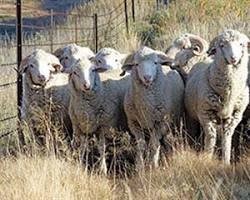 |
| Source: www.farmersweekly |
During the late 18th century, a significant infusion of Merino blood was introduced into German sheep breeds along the borders with France. Over time, these crosses developed into what is now known as the Est a Laine breed, primarily concentrated in the Alsace Lorraine region of France.
Est a Laine sheep are renowned for their robust build, large frame, and fine white wool. Unlike their Merino ancestors, they are naturally polled, meaning they lack horns. Their distinctive long heads and drooping ears contribute to their characteristic appearance. Additionally, their necks lack folds or dewlaps, which facilitates the shearing process. This combination of traits makes them both visually appealing and practical for wool production.
